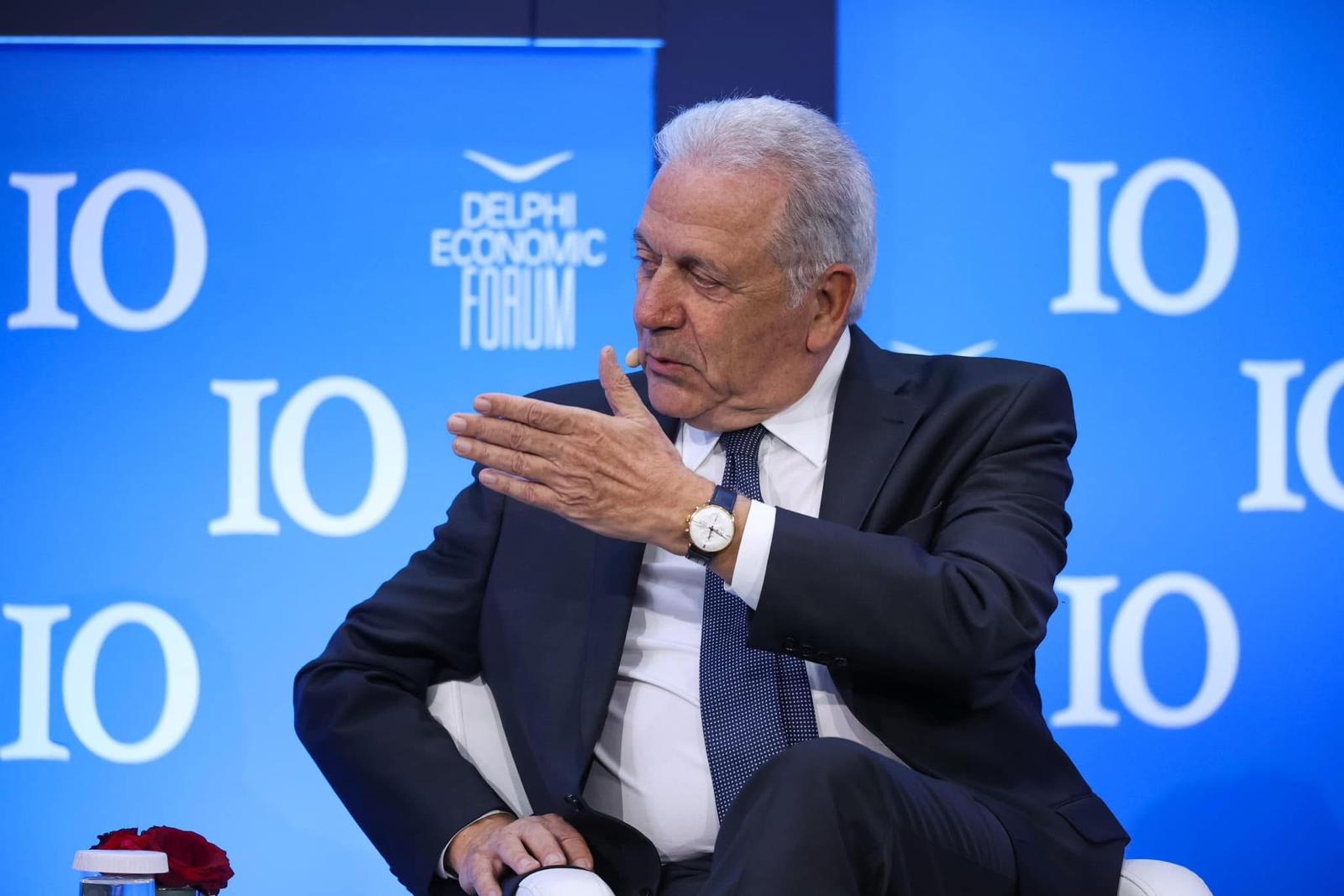Cyprus’ leaders “must be encouraged” to achieve a solution to the Cyprus problem, former Greek foreign minister Dimitris Avramopoulos said on Monday.
Writing in newspaper Politis, he said a “sustainable and functional” solution to the Cyprus problem “can transform the eastern Mediterranean from a zone of tension into a place of coexistence, stability, and common development”.
A solution, he said, “is an opportunity not only for Greece and Turkey, but for the entire region”.
He added that as such, “the leaderships must be encouraged and must move with responsibility in the direction of a resolution”.
“The Cyprus problem is one of the most longstanding and complex issues in all of international diplomacy. However, its resolution does not only concern the relations between Cyprus or Greece and Turkey. It is also connected with regional security, cooperation, and the overcoming of a matter left in limbo historically,” he said.
He added that the absence of a solution and the continuation of division on the island “deepens suspicions” between those involved.
“It creates room for nationalist voices on both sides to feed hatred for internal political reasons. This leads periodically to dangerous tensions,” he said, adding that in Cyprus, “the insistence on threatening rhetoric and antagonistic actions is not just absurd, it is also contrary to the historical context”.
“The world is changing, and the eastern Mediterranean must also turn towards the future. A sustainable and functional solution on the basis of a bicommunal, bizonal federation, with absolute respect for political equality, can create a new dynamic.”
Of a future “United Republic of Cyprus”, he said that it will “act as a catalyst for stability in the region, playing a central role in the holistic demarcation of maritime zones and in the sharing of energy resources”.
“The energy networks will be able to be developed seamlessly, and geopolitical tensions will give way to constructive dialogue.”
He added that at the same time, a united Cyprus will have a “strengthened geopolitical, geo-economic, and geo-cultural role as a trusted partner”, which will be able to “contribute substantively to the revitalisation of relations between the European Union and Turkey, which remain at a standstill, and which are often trapped by conflicting motives”.
“Meanwhile, it will support the reactivation of channels of dialogue which are today dysfunctional, both between Europe and Turkey, and at a transatlantic level. It will also offer a more favourable framework for the EU to become more actively involved in developments in the eastern Mediterranean and it will strengthen its reliability as a geostrategic actor.”
Cyprus, he explained, as an EU member state, “can become a critical link of connection between Brussels and Ankara, within a framework of mutual respect and common interests”.
Of relations between his own country and Turkey, he said the pair can “reorientate their relations, seeing Cyprus not as an obstacle, but as a bridge”.
“The region can move from tension into development. Cyprus can become a global standard of mutual respect and coexistence,” he said.
Turning his attention back to the island’s leaders, he said that those who “lead this process with political responsibility and a vision” will “undertake a historic mission”, but stressed that it will not be without reward.
“The architects of the solution, who will act with courage and strategic insight, will deserve international recognition, and that process may bring them a symbolic but substantive prize, such as the Nobel Peace Prize,” he said.
“However, it will be about more than just a prize: it will be a global symbol of transition from conflict to cooperation in the eastern Mediterranean.”
Avramopoulos served as Greece’s foreign minister between 2012 and 2013 under then prime minister Antonis Samaras. He also served as the European commissioner for home affairs under Jean-Claude Juncker between 2014 and 2019.
He remains an MP in Greece for the country’s ruling New Democracy party, having first entered the country’s parliament in 1993.






Click here to change your cookie preferences